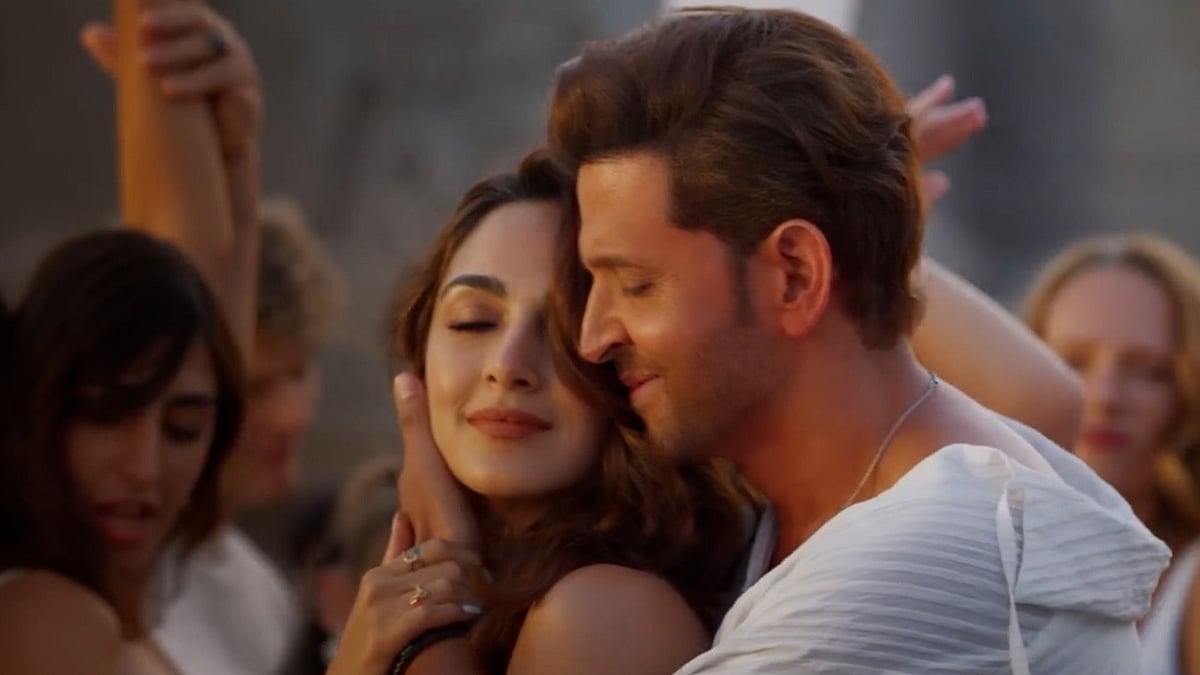'War 2' Review: Hrithik Roshan & Jr NTR Combat Terror and a Sloppy Screenplay
Hrithik Roshan and Jr NTR's War 2 drowns in flat writing—and a punishing three-hour runtime.

advertisement
You’ve got to hand it to Ayan Mukerji—none of his four films resembles the others. He debuted with a gentle coming-of-age story in Wake Up Sid, followed it with a big Bollywood rom-com in Yeh Jawaani Hai Deewani, then spent a decade working on the VFX-heavy mytho-fantasy epic Brahmāstra.
And now, with War 2, his first film outside of Dharma Productions, he turns director-for-hire for Yash Raj Films’ sequel to War (2019).
This is the first time Mukerji hasn't had a writing credit on a film. War 2 has a story by producer Aditya Chopra, a screenplay by Shridhar Raghavan, and dialogues by Abbas Tyrewala—all of whom wrote for War.
The Missing Vision
Anand’s directorial vision powered War beyond its frankly silly plot leaps (in the simian Tiger Shroff’s case, literal leaps), aided by a screenplay that provided just the right amount of emotional undergirding. That vision is completely absent in War 2.
See, for instance, how Khalid (Shroff) was introduced in the first film: a single-shot action scene with no background score—only the crunch of bones and glass. Now compare this with the opening action sequence in War 2, where Hrithik Roshan, reprising his role as R&AW agent Kabir, infiltrates a Japanese mafia don’s mansion and singlehandedly takes down about 20 armed men. This alone would have made its point.
Hrithik Roshan in a still from War 2.
(Photo Courtesy: YouTube)
Messy Screenplay and Pacing
Later, when the film’s other hero, Vikram (Jr NTR, making his Hindi debut), is introduced, we actually get tiger roars on the soundtrack. I don’t contend that our heroes shouldn’t be valourised, but how much underlining is too much underlining? The score is relentless. And in case we still don’t appreciate the star power on display, Mukerji regularly unleashes the slow motion. Indeed, Vikram can’t seem to lift weights without doing it in slow-mo.
War had its share of slow-mo as well (that windswept shot of Hrithik exiting a helicopter is seared into many a drooling mind), but it balanced its posturing with its story more smoothly.
Jr NTR in a still from War 2.
(Photo Courtesy: YouTube)
War 2’s screenplay has lost that quality. The first half is just action sequence after action sequence, with only one small sentimental hook to hold on to. But the second half suddenly has not one but two emotional backstories, two emotional songs, and two climaxes.
The film is also derivative: Kabir’s involvement with an international terror outfit named Kali is too reminiscent of the similar track in War, where he went rogue on the government.
Enjoyable First Half, Weak Second Half
The big halfway-point reveal gives way to a protracted flashback that feels like it belongs in a very different film—suddenly we seem to be in a Salim-Javed screenplay, with rough-and-tumble teen boys forming passionate bonds before being driven apart by the state. We even get a direct reference to Deewaar, in the dialogue ‘ek deevaar ke is taraf, doosra us taraf’—and as if that wasn’t enough, there is a literal wall between the boys.
Before this, the first half is enjoyable—generic, but slick. There are dumb-but-fun lines like ‘MICE’ being an acronym for money, ideology, compromise, ego—reportedly the four things that can cause an agent to go rogue. There is a cool car chase set in Spain, featuring a returning character from the first film.
And there is the Janaab-e-Aali song sequence, which doesn’t possess the sheer balletic flourish of Jai Jai Shivshankar, but as two-hero dance-offs go, it’s a lot of fun; plus, Jr NTR is a pleasure to watch when he’s dancing.
Jr NTR in a still from the song Janaab-e-Aali in War 2.
(Photo Courtesy: YouTube)
The Film is Let Down by Rocky Writing
But despite these touches, War 2 is let down by its rocky writing. The first flashback post-interval is given so much time—there’s even a Pritam song in there - that the other characters end up shortchanged. Anil Kapoor appears as R&AW chief Vikrant Kaul, making no impression whatsoever besides sporting impressively greyed sideburns.
Kiara Advani in a still from War 2.
(Photo Courtesy: YouTube)
Mukerji’s Most Disappointing Film
The focus is on Kabir and Vikram, whose relationship is deeper and more fraught than you would expect. There is an interesting idea raised—that Kabir inadvertently loses people who become close to him. But this is brought up far too late to be of any consequence.
There’s also some solid homoeroticism (as in War), especially in the flashback and the climax—watch out for a painful piercing, which works as both sexual and emotional metaphor.
But these ideas are flattened by the film’s unstinting globetrotting, endless action, and interminable length. Stray moments of invention (a boat careering down a race track), and Hrithik’s trembling eyes don’t do much to liven up the leaden proceedings. Nothing sticks.
(Sahir Avik D'souza is a writer based in Mumbai. His work has been published by Film Companion, TimeOut, The Indian Express, and EPW. He is an editorial assistant at Marg magazine.)